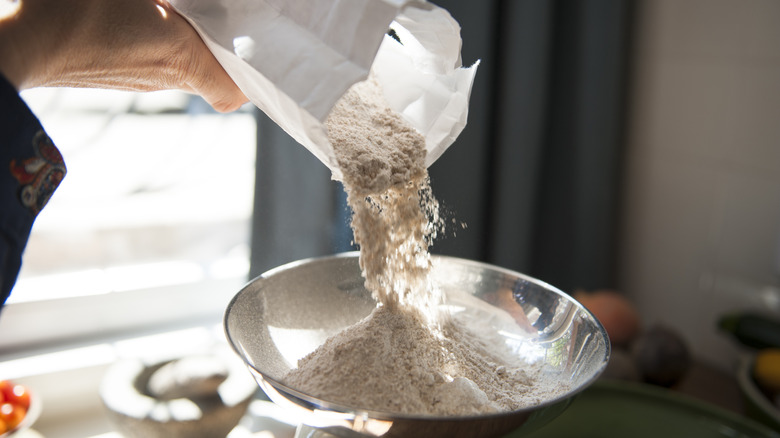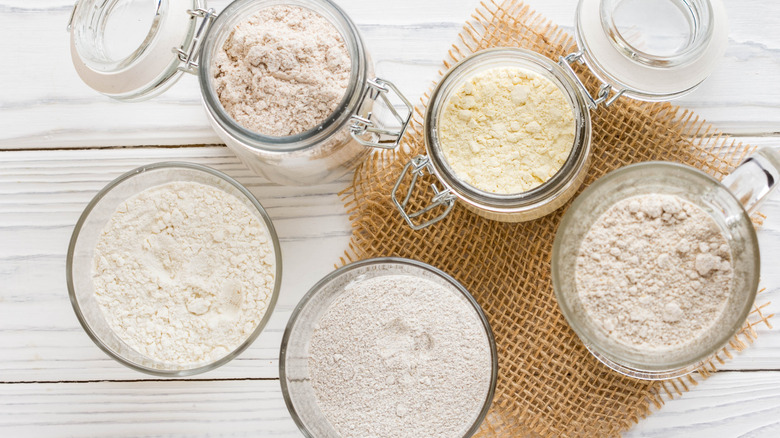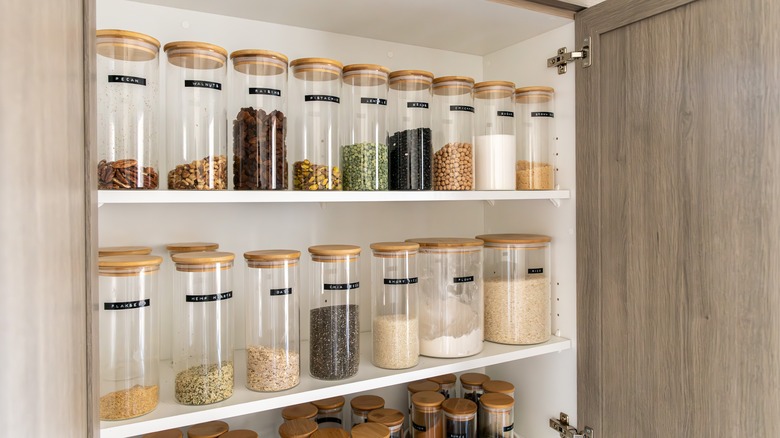Here's What Happens When You Use Old Or Expired Flour To Make Bread
Breadmaking is a skill — it takes practice, patience, and a whole lot of flour. It's also important to use a quality powder brand and avoid using old or expired products. In an exclusive interview with Chowhound, Nathan Myhrvold — founder of Modernist Cuisine and lead author of 2024's "Modernist Bread at Home" — said there's some debate over whether or not flour is one of those few foods that don't expire. "There are people who believe that aging flour on the order of months after its first milled is actually beneficial, and there are people who are equally very proud of saying they use fresh milled flour," he said. While you may have some wiggle room — around six weeks past the expiration date, especially if you store it in the fridge or freezer — flour usually lasts for a year after it's first milled.
"It's not necessarily the flour's age that's the issue, it's that older flours have more opportunity to become infested with insects," Myhrvold explained. As with many pantry items, the longer they're sitting around, the higher the chance that bugs get into them. Make no mistake: You should discard your flour at the very first signs of insect infestation.
As for the importance of freshness, old flour can develop a stale or off flavor, which will transfer to your bread. Plus, the powder's protein content can degrade over time and affect gluten formation. This leads to a denser, less elastic dough, making the bread heavier and less airy — similar to what happens if you over-knead your dough.
Some types of flour expire quicker than others
Bad odor or clumpy texture can be signs that it's time to throw out your flour, but different types might last longer than others. Whole wheat flour, for example, requires particular attention when it comes to storage and usage. "Commercial whole wheat flour is made by separating off the bran from the white part of the flower (which is called the endosperm), grinding them separately, and then heat-treating the bran," Nathan Myhrvold explained to Chowhound in our exclusive interview. This process is crucial because the bran contains oil, which can become rancid over time. Unlike refined white flour, whole wheat flour has a shorter shelf life thanks to those oils, which can spoil and impart a bitter taste to your bread.
For those who prefer using freshly-ground whole wheat flour, Myhrvold advised to use it immediately. This is particularly important for home bakers who grind their own flour or purchase coarse, freshly-ground whole wheat flour. Likewise, self-rising flour is another type of flour that you should keep a particular eye on. Over time, the rising agents can go bad and lose their effectiveness, leaving your bread much flatter than you'd hoped for. The same goes for gluten-free flours that are made with whole grains. Nut flours also contain oils that make their shelf lives shorter than refined flours.
Storing flour properly for optimal freshness
Proper storage of flour is essential to maintaining its freshness and extending its shelf life, which directly impacts the quality of your bread. To keep your flour at its best, store it in an airtight container in a cool, dark place, such as a pantry or cupboard. For whole wheat, gluten-free, and nut flours, which have shorter shelf lives due to their higher oil content, refrigeration or freezing is recommended. This helps prevent the oils from turning rancid, preserving the flour's quality and flavor for a longer period.
Labeling your containers with the purchase or milling date is also a good practice to ensure you use the oldest flour first. If you buy flour in bulk, consider dividing it into smaller portions and freezing them until needed — this can significantly prolong its usability. While refined flour typically has the longest shelf life, it still won't last forever. The bottom line? The fresher your flour, the better your bread! By following these storage tips, you not only protect your flour from spoilage and insect infestation but also ensure that every loaf of bread you bake has the potential to rise beautifully and taste as fresh as possible.


